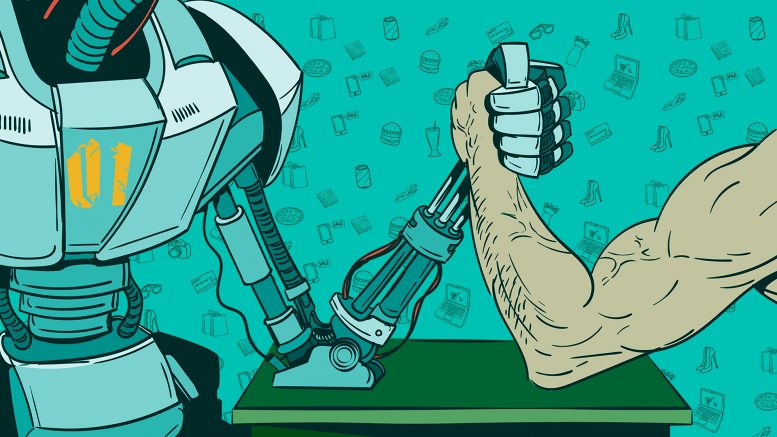“I wish we had been born in better times.”, said Rajesh to Sid, his batchmate from engineering college and tossed the latest report on the impact of AI and ML on jobs, on the table. Both Rajesh and Sid are in their early thirties and after completing their B-Tech are employed with an IT outsourcing firm for the past few years. However, lately they had been hearing about the adverse impact of AI / ML on jobs and are worried.
Rajesh added, “It used to be easy in the late 90s. Even people with engineering diplomas got good placements with top IT services firms and made their money in the last two decades by opting for projects in the US and Europe. Now, when it’s our turn, we are not sure if our jobs will even exist after five years. I am very confused, which course to enrol myself into.”
Sid, who was not very articulate, declared, “I cannot go back to studying again. I am done with college and classes.”
I am sure most of us can relate to the above conversation. Either we have had a similar conversation or have been part of a discussion on the likely impact of AI on a particular industry. In the past couple of years, AI / ML and Analytics have taken centre-stage in more ways than one. On one hand, people are impressed with companies such as Google, Amazon, FB and Netflix and how they are utilising latest technologies to target their customers with right products and services; the bots; and AI based assistants.
On the other hand, there is widespread anxiety about possible job losses, especially those jobs, which are repetitive and routine. According to business reports, 40% of the global workforce will be obsolete by 2030. Also, almost 65% of kids studying in primary schools will end up in jobs that do not even exist today. This seems like a scary scenario, almost like a check mate! What do you teach kids when you don’t know what are the skills required for the jobs that don’t exist today!!
However, not everything is lost and people like us, who are in the communication field, have something to be cheerful about. Most experts talk about the importance of communications in the world of the future. The futurist philosopher Noah Harari, in his book “21 lessons for the 21st Century” talks of four general purpose skills that should be taught to kids in order to prepare them for the jobs of the future. The skills that Noah propagates are – Critical Thinking, Communication, Collaboration and Creativity. He suggests that these skills are much more important than technical skills or hard skills such as maths and programming.
The jobs of the future will require much more collaboration and the ability to communicate complex ideas effectively. Therefore, good writing skills and the ability to influence teams through clearly communicating ideas will become highly prized skills. Currently, organisations are not putting enough emphasis on improving the communication skills of their staff. The top layer within the organisation often has good communication skills but as we move down the chain of command, the quality falls drastically. Even today, the inability to express clearly and influence others is a deal breaker as one moves up in the corporate hierarchy. However, going forward this will be an even more critical area. Organisations and individuals should invest time and resources in improving communication skills through regular training and coaching. The ability to adapt to changes is going to be critical if one has to stay employable in the future. We should heed Isaac Asimov’s advice as he once said, “People think of education as something that they can finish.” Individuals who have the mindset to be lifelong learners and who keep on reskilling themselves will be able to adapt to the fuzziness of the future.
The problem of lack of collaboration plagues many large global organisations even now. Our education system has always emphasised on individual accomplishments and personal glory by rewarding high marks in tests and showering plum seats to individuals who score high in competitive exams. The same philosophy of individual glory and very high competitive spirit gets carried through when they join the workforce. These high achievers cannot easily give up this individualism and hence find it very difficult to collaborate as a team. In the future, collaboration will be a key competitive strength for companies who are able to get it right and conversely, become a big stumbling block for the ones who cannot break the code.
In my opinion, if individuals remain flexible, imbibe the spirit of life-long learning, and invest in soft skills like communication and collaboration, they will have nothing to worry about. To end, I would like to quote Isaac Asimov again, “In life, unlike chess, the game continues after checkmate”.



Be the first to comment on "The Game Continues After Checkmate!"